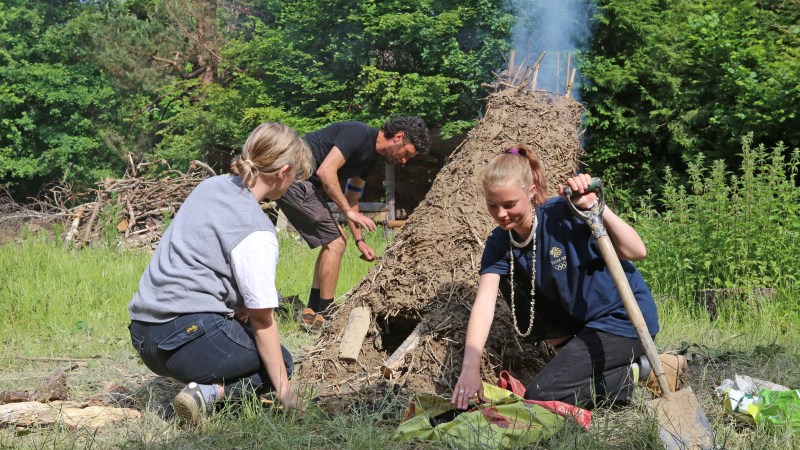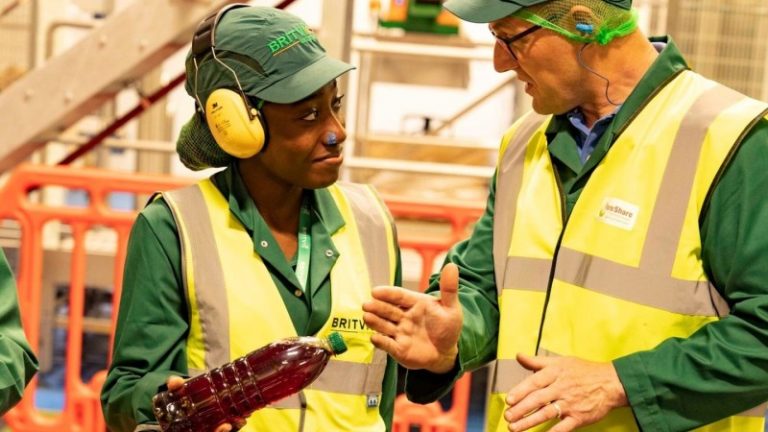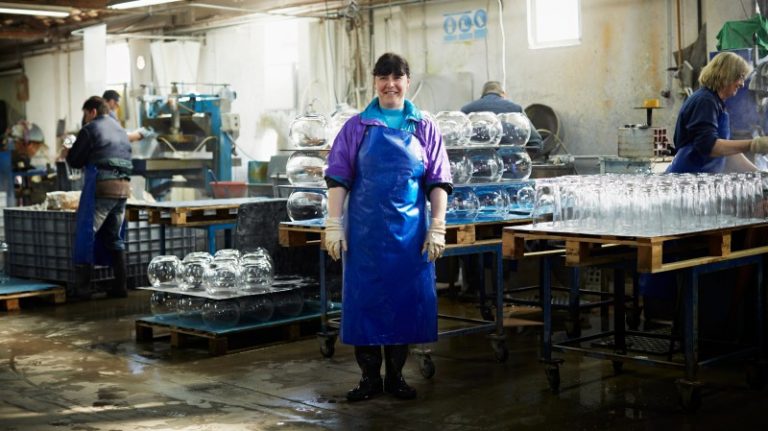How we got our teenagers off their phones and playing outside
I’m chatting with some 14-year-olds — unlikely, I know — and they’re telling me about their hobbies. “Ants!” volunteers Sam. “I have 35 test tubes full of them, and when they’re big enough, they’ll make a nest.” He’s also reading a book about ants and has a blue belt in taekwondo. Imogen says she likes drawing, listening to music and reading: “Everyone in my class reads all the time.”
Anyone with teenagers in their lives will know that all of this is highly unusual, given that, according to Ofcom, 97 per cent of 12-year-olds own a smartphone, and from then onwards, exist in a parallel universe where TikTok-style perms on boys are considered cool, Prime energy drinks are deemed healthy and five hours of social media use daily is completely normal.
What has liberated Sam and Imogen from this fate — and indeed most of their class at Michael Hall, a Steiner school in East Sussex — is that 18 out of 20 of them don’t own a smartphone. For this they have their forward-thinking parents to thank, who back in 2019 made a pact to protect their children from smartphones until at least 15.

Trust me, kids — you will thank them. After years of fretting over children’s mobile use, the issue is finally reaching the top of the agenda. Last week Gillian Keegan, the education secretary, promoted government guidance banning mobile phone use in schools.
This shift is a response to evidence. The evidence in front of parents’ own eyes — as well as the academic literature — shows something has gone quite drastically awry. “Overwhelmingly, the evidence shows that smartphones and social media together are directly related to negative mental health outcomes among adolescents,” says the research scientist Zach Rausch, who has helped lead the way in this field.
Since 2010, he adds: “There’s been a surge in depression, anxiety, self-harm and even suicide, especially among girls.” Girls born after 1995 — the first teens to own smartphones — “have higher suicide rates than any previous generation on record in all five of the major English-speaking countries”. And that’s before you consider specific smartphone-related issues such as access to violent porn, cyberbullying, reduced focus and sleep loss.
It’s hardly surprising, then, that the last couple of weeks has seen the explosion of two grassroots, parent-led movements: Smartphone Free Childhood, now with more than 20,000 WhatsApp members, and Delay Smartphones, with nearly 3,000 parents pledging to wait until their kids turn 14 before giving them smartphones.

It was a smartphone-induced “disaster” among the older children that pushed some of the Steiner school mums in East Sussex into action. The problem was “bullying, social exclusion on WhatsApp, and the expectation to be available 24/7”, explains Sam’s mother, Tina, in whose house we’ve gathered to discuss their phone-free kids.
Clearly the horse had bolted for these older children. But could the younger ones be spared? “We thought, ‘Let’s be smart about this’,” explains another mother, Michelle. “We started talking as a whole year group.” Unless there was group buy-in, this thing would never get off the ground.
The parents agreed the kids could have “brick” phones, which call and text but don’t support advanced social media apps. They also banned messaging groups — everything social would happen offline. “It hasn’t actually been that difficult,” says a mum who’d prefer to remain anonymous — let’s call her Kate. “Having a critical mass is key to setting new norms, because then the kids understand they won’t get a phone any time soon, so why even ask? If you’re pioneering on your own, you’re up against a tidal wave.”
These parents have noticed many positives amongst their teens. “They’re still creative, they still spend time in nature and we still enjoy family films together,” says Michelle. “We don’t lose them to checking their phones.” It’s allowed them a “proper childhood”, adds another mum, Abbie. “And it’s helped them to be authentically themselves, to investigate the things they’re interested in, rather than what they think they need to reflect.”
But what about the kids — don’t they have Fomo (fear of missing out)? “I really don’t feel the need for [a smartphone],” says Finley, 14. Imogen feels her class is closer as a result: “It means we spend more time with each other, doing different activities and just being more friendly together.”
One of the main justifications for smartphones in childhood is safety — parents want to be able to track their children, and kids can call if they’re in trouble. But there’s a value, explains Kate, “in facing a situation on your own, where you just have to work it out”. It also encourages accountability among the pupils, says Michelle: “We make old-school arrangements, ‘We’ll collect you at 10pm.’”
• Meet the parents trying to keep their children smartphone-free
Because Michael Hall is a Steiner school, which already promotes a low-tech educational philosophy, travelling the smartphone-free path is somewhat easier. So how can parents of children in mainstream education achieve similar results ahead of secondary school? It’s undoubtedly harder, but as the Edinburgh-based “solutions-focused” psychotherapist and Delay Smartphones founder Hannah Oertel found, it is possible.
Last year Oertel, who has two girls aged 11 and 9, individually approached 51 parents of 9 and 10-year-olds from three local primary schools, asking them “non-judgmentally” if their children had smartphones. “Every single one said they’d get one by the age of 10,” Oertel says. “‘Oh, it’s a nightmare’, they’d say. ‘There’s nothing we can do.’”
After researching what makes people change their mind, Oertel developed an in-person, “parent to parent” plan, along with 20 fact cards detailing the harms of smartphones (for example, “50 per cent of 12-year-olds regularly see online porn” ). She also invested in a show-and-tell of alternative devices — for example, a tracker watch and the Mighty music-streamer, and invited parents to commit to not getting their child a phone until they turned 14. A total of 48 parents signed the pledge.
But could we be disadvantaging our kids by not giving them a headstart in tech? How will they flourish in a world of AI if we deny them the latest technology? “This isn’t a no-tech campaign,” insists Oertel. “Tech is a tool and essential to our lives.” She mentions one mum who delayed giving her son a smartphone until he was 14, and, “he was top of the class in computing”. This is about getting smartphones out of kids’ pockets: “It’s about the notifications and that constant dopamine hit — it turns kids into little addicts.”
But not the Steiner kids. “If I had a phone,” says Sam, “I wouldn’t be so engrossed in my ants.” And with that, he skips to the piano and launches into the opening bars of Gymnopédie No 1.






